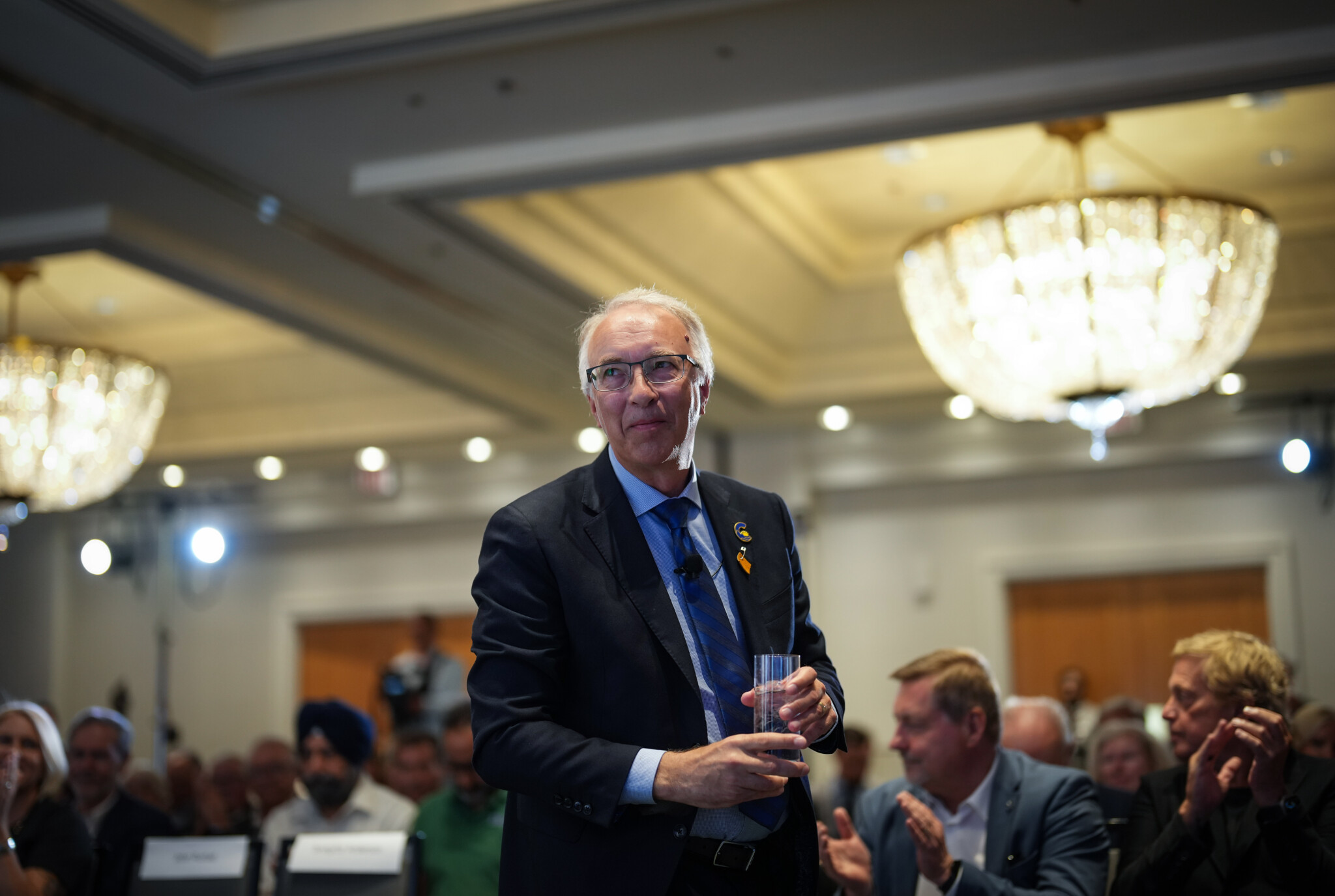The Conservative Party of BC website is clear: the party has “no official affiliations to any federal, provincial and/or municipal parties.” This might come as a surprise to the newbie supporter, but, in case it’s lost on you, the site says the party is a “provincial party,” and the Conservative Party of Canada is, well, a “federal” one. Sounds like a pretty airtight distinction, but, not so quick, because it adds: “While our parties are divided in jurisdiction, we do share common conservative beliefs, including smaller government, personal freedom, and fiscal responsibility.”
Yes, so: same belief systems, same name, just not on the same shared path. Why? Because there’s another provincial suitor, the BC United Party, formerly the BC Liberals.
Not so long ago, BC United was considered—and considered itself—the logical fellow travellers of the federal Conservatives and the eventual recipient of its blessing. The BC United leadership, most of its MLAs, and the remaining membership after two election losses were decisively conservative given that many Liberals moved to the BC NDP. Why else get rid of the L-word in the party name if not to appease the conservatives? Then again, sometimes things don’t work out the way they’re planned. The conservatives didn’t care about the name change—they fled to the fledgling BC Conservatives.
Still, it is important to understand that this delicate, non-contact federal-provincial dance began in what now seems ancient days when the provincial Conservative party barely registered in the polls and BC United was the preeminent alternative—if a distant second that couldn’t seem to close the gap—to the ruling BC NDP.
At the time, and the time was not so long ago, there was nothing to be gained and much to be lost for Pierre Poilievre in choosing sides. His federal party was itself ascendant and wanted to scoop both party’s voters without offending anyone’s, so he stewarded a safe, agnostic approach. It meant photo ops with both, careful phrasing so as not to offend, and nary a discordant word of either.
And the covenant has so far held. The federal Conservative Party hasn’t yet been willing to throw its support behind one or the other.
Doing so might be messy—but it might also be worth it. Most have been expecting that, during the campaign leading up to the provincial election on October 19, Poilievre would wear an electric dog collar set to activate at the B.C.-Alberta border. But the political dynamic has changed majorly in 2024. It may be time to shelve the collar idea and have Poilievre come west, come way west, in the months ahead with a different purpose.
The BC Conservative party is rapidly rising, BC United is rapidly sinking, and the BC NDP is craning over their shoulders as the competition rapidly closes in. The question arises among Conservatives, provincial and federal, of whether it’s time to call what walks like a duck, acts like a duck, and quacks like a duck…a duck.
Not only might it be time, but might it be crucial?
There are dozens of days and political plays remaining before the next government of B.C. is determined. Momentum is on the BC Conservatives’ side, but polls still show a gap sufficiently large enough to return a majority BC NDP government. The notion of a unite-the-Right merger might have made sense a few months ago, but there are too many candidates nominated to salvage the idea now without taking too many people out of the picture with either party. No, it seems a new shot in the arm is required.

B.C. Conservative Leader John Rustad walks to the podium to speak at a Greater Vancouver Board of Trade event in Vancouver, June 20, 2024. Darryl Dyck/The Canadian Press.
The federal Conservatives lead the federal NDP by 20 points in British Columbia (the Liberals are barely on the scoreboard), and with the BC Conservatives trailing the BC NDP, a federal endorsement only stands to be helpful to the BC Conservatives and low-risk to the federal Conservatives.
There is no particular problem now in walking away from BC United, who are in triage mode. Many within the party are looking for leader Kevin Falcon to step aside so the party can find a caretaker to get them through October and then into a soul-search on the future; the betting is that in time it’ll roll itself into the BC Conservatives, presuming they move more toward the centre-Right.
A Poilievre endorsement might be the difference in the campaign—just as the absence of one might also be. The worst scenario for the BC Conservatives would be to fail to gain the federal blessing and, having been denied the national Conservative Party’s machinery, presence, and resources, thereby lose the election. There would be quite the recrimination with the federal crew if it sat on its hands and squandered such a golden opportunity.
Poilievre and NDP Premier David Eby are carbon-based forms of life, but they hold little else in common. They would be wretched first minister partners, particularly in challenging economic times with troubling public balance sheets—the federal leader looking for wealth creation, the premier for wealth redistribution. Poilievre needs compliance and coherence, not confrontation and conflict, in Canada’s largest provinces.
As premier, BC Conservative leader John Rustad would easily be Poilievre’s clearest ally. The two share a distaste for the carbon tax and a shared vision on resource development, crime, health care, and much else. Their prosperity plans would likely align, and a Rustad government would presage by a year a large part of Poilievre’s agenda; such was never going to be the case with Falcon’s BC United.
Day upon day, people are unhitching themselves from the BC United wagon. Donors are walking in serious numbers—the Conservatives more than doubled BC United’s second-quarter fundraising, and that gap will only widen as the real game approaches.
On the other hand, the NDP is raising more money than BC United and the BC Conservatives combined. It holds a strong poll position, features plenty of experienced MLAs, and has a get-out-the-vote machinery the BC Conservatives have yet to build. Anyone who thinks it will just watch the poll numbers weaken doesn’t know how suited it is to playing hardball.
Poilievre has a penchant for the sharp statement. This sure would be one of them.









